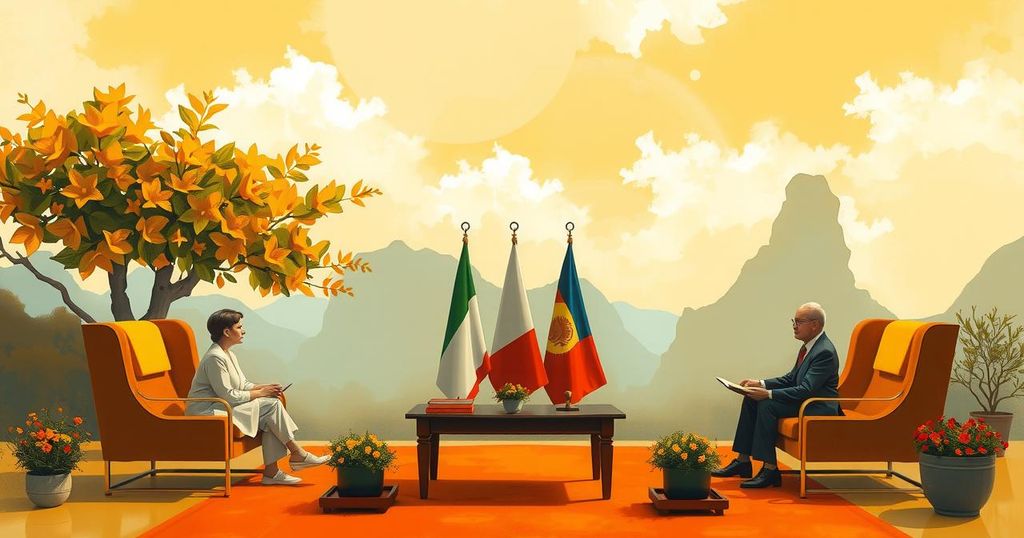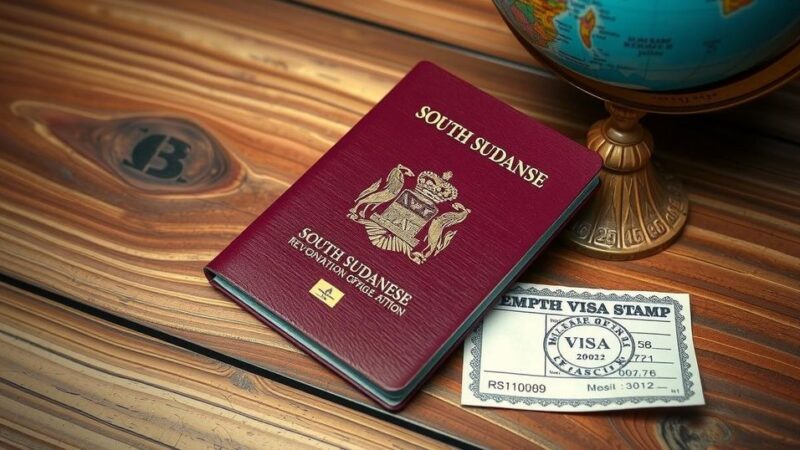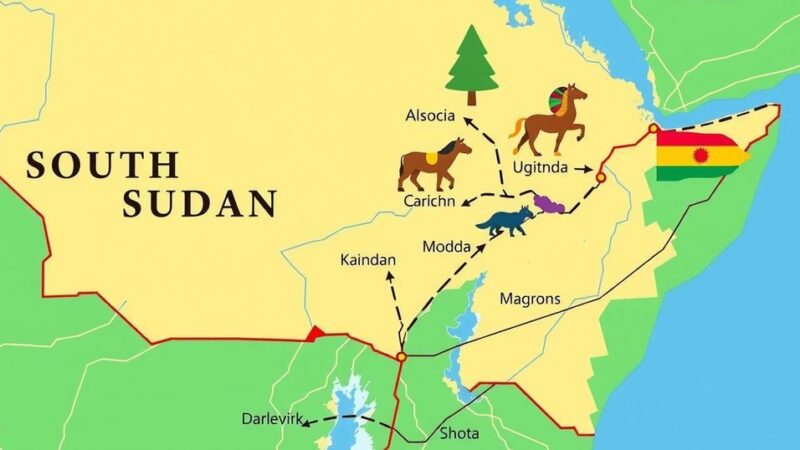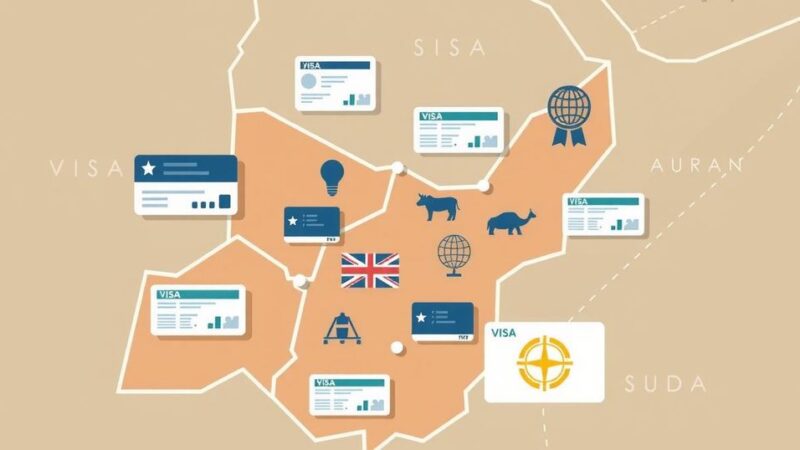The DR Congo government will engage in peace talks with M23 rebels in Angola. Previously, President Tshisekedi refused direct negotiations. The conflict escalated with M23’s capture of key cities. The talks aim to address the humanitarian crisis resulting from the conflict and involve international considerations, including US interests in mining partnerships.
The government of the Democratic Republic of Congo (DR Congo) is set to engage in peace talks on Tuesday in Luanda, Angola, with the M23 rebel group, which has received backing from Rwanda. Tina Salama, spokesperson for President Felix Tshisekedi, confirmed the participation of a delegation from DR Congo. Previously, President Tshisekedi had declined direct negotiations with the M23 rebels, who have taken control of significant areas in the eastern part of the country.
The escalation in violence began in January when M23 rebels advanced and captured the strategic cities of Goma and Bukavu within DR Congo. Angola has positioned itself as a mediator in this ongoing conflict and announced the hosting of direct peace talks between the government and the M23 group for Tuesday. Earlier peace negotiations were abruptly cancelled in December after Rwanda insisted on direct dialogue as a precondition, which DR Congo rejected.
President Tshisekedi had stated, “A dialogue with a terrorist group like the M23 is a red line that we will never cross,” highlighting the government’s resistance to negotiating with the rebels. The M23 is among many armed groups competing for influence in the resource-rich eastern region, where over seven million individuals have been displaced, contributing to a significant humanitarian crisis. Reports indicate that approximately 4,000 troops from Rwanda support the M23.
In summary, the upcoming peace talks in Angola represent a critical endeavor to address the ongoing conflict in the Democratic Republic of Congo, particularly regarding the M23 rebel group. While the Congolese government has shown reluctance to directly negotiate with the rebels, the situation remains tense. The international community, including the United States, is closely monitoring developments, indicating potential partnerships that may influence the region’s stability.
Original Source: morningstaronline.co.uk






